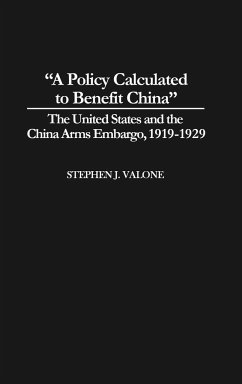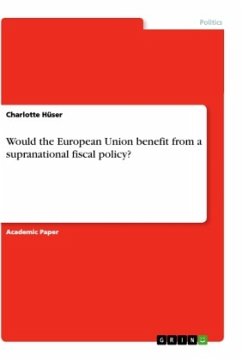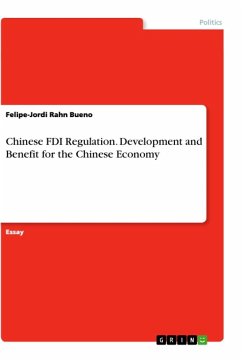Stephen Valone takes the first in-depth look at the China arms embargo (1919-1929) and places it in the larger context of United States foreign policy. Until now historians have focused on the formation of the Second Banking Consortium as the U.S.'s primary weapon against Japan's aspirations in China. Valone explores the crucial role that the China arms embargo concurrently played in limiting Japan's intentions. The embargo's ostensible goal was to inhibit the flow of weapons into China forcing rival Chinese factions to negotiate their differences at the conference table. The United States' deeper motive was to roll back Japan's influence and defend its Open Door policy in China. Valone's diplomatic history concludes with a positive assessment of the embargo as a tool of U.S. foreign policy. From 1919 to 1929 the United States participated in an international agreement known as the China arms embargo. Stephen Valone's study provides an in-depth coverage of this embargo. Chapters cover Japan's wartime gains in China; Japan's apogee; ban on loans; arms embargo; challenges to the embargo; embargo success; British defense; unsuccessful attempts to strengthen the embargo; and the Soviet threat and cancellation of the embargo.
Hinweis: Dieser Artikel kann nur an eine deutsche Lieferadresse ausgeliefert werden.
Hinweis: Dieser Artikel kann nur an eine deutsche Lieferadresse ausgeliefert werden.








